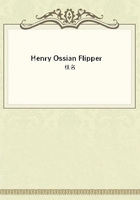
第46章
I was on guard that day, and while off duty an officer high in rank came to me and invited me to visit him at his quarters next day. I did so, of course. His first words, after greeting, etc., were to question the truth of the rumor, and before hearing my reply, to beg me to relinquish any such intention. He was kind enough to give me much excellent advice, which I have followed most religiously. He assured me that prejudice, if it did exist among my instructors, would not prevent them from treating me justly and impartially. I am proud to testify now to the truth of his assurance. He further assured me that the officers of the Academy and of the army, and especially the older ones, desired to have me graduate, and that they would do all within the legitimate exercise of their authority to promote that end. This assurance has been made me by officers of nearly every grade in the army, from the general down, and has ever been carried out by them whenever a fit occasion presented itself.
Surely this is not discouraging. Surely, too, it is not causing me "to seek refuge from a sea of troubles." We need only go back to the article quoted from the Era, and given in Chapter III., to find an explanation for this conduct.
"We know that any young man, whether he be poor or black, or both, may enter any first-class college in America and find warm sympathetic friends, both among students and faculty, if he but prove himself to be possessed of some good qualities."This is the keynote to the whole thing. One must not expect to do as one pleases, whether that be right or wrong, or right according to some fanatical theory, and notwithstanding to be dealt with in a manner warranted only by the strictest notion of right.
We must force others to treat us as we wish, by giving them such an example of meekness and of good conduct as will at least shame them into a like treatment of us.
This is the safer and surer method of revenge.
"Therefore if thine enemy hunger, feed him; if he thirst, give him drink; for in so doing thou shalt heap coals of fire on his head."To proceed: I am undoubtedly a first-classman. None other has enjoyed that eminence. There are many honors and responsibilities incident to that position or rank.
First-classmen have authority at times over their fellow-cadets. How will it be when I come to have that authority?
Will that same coldness and distance be manifested as hitherto? These are important questions. I shall be brought necessarily into closer relations with the cadets than before. How will they accept such relationship? The greatest proof of their personal convictions will be manifested in their conduct here. If they evade my authority, or are stubborn or disobedient, then are their convictions unfriendly indeed. But if kind, generous, willing to assist, to advise, to obey, to respect myself as well as my office, then are they, as I ever believed them to be, gentlemen in all that recognizes no prejudice, no caste, nothing inconsistent with manhood.
There are certain privileges accorded to first-classmen which the other classes do not enjoy. The privates of the first class do duty as officers of the guard, as company officers at company and battalion drills, at light battery drills, and at other drills and ceremonies.
In all these cases they have command of other cadets.
These cadets are subject to their orders and are liable to be reported--indeed such is required--for disobedience, stubbornness, or for any thing prejudicial to good order and good discipline.
In this fact is a reason--the only one, I think, which will in any manner account for the unpardonable reserve of many of the cadets. To be subject to me, to my orders, was to them an unbearable torture. As they looked forward to the time when I should exercise command over them, they could not help feeling the mortification which would be upon them.
I must modify my statement. They may be prejudiced, and yet gentlemen, and if gentlemen they will not evade authority even though vested in me.
We go into camp at West Point on the 17th of June, '76for ten days. During all that time I enjoy all the privileges of first-classmen. Nothing is done to make it unpleasant or in any way to discourage or dishearten me.
We go to Philadelphia. We visit the Centennial, and there not only is the same kindness shown me, but I find a number of cadets accost me whenever we meet, on the avenues and streets, on the grounds and in the city.
They ask questions, converse, answer questions. This occurred several times at the Southern Restaurant, as well as elsewhere. After the parade on the 4th of July, every kindness was shown me. Those cadets near me bought lemons, lemonade, etc, and shared with me, and when, on another occasion, I was the purchaser, they freely partook of my "good cheer." What conclusion shall I draw from this?
That they are unfriendly or prejudiced? I fain would drop my pen and burn my manuscript if for even an instant Ithought it possible. And yet how shall I explain away this bit of braggadocio in the words italicized in this article from the Philadelphia Times?
"The Color Line.--One of the first-classmen is Mr.